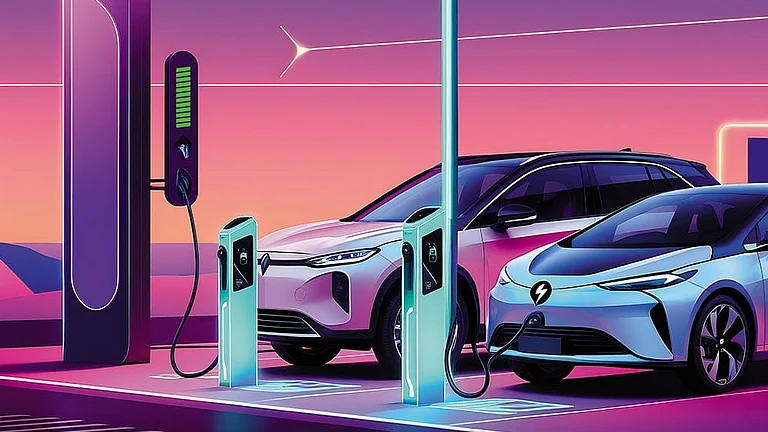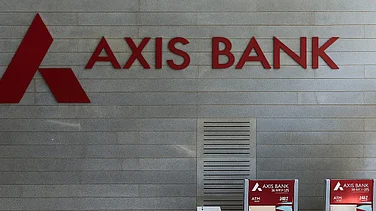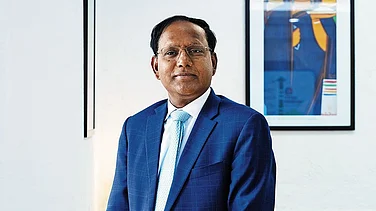The recent GST rate cut is likely to make the upcoming festive season the 'best-ever' for the luxury carmaker, but there is a need to cap road taxes levied by states on car purchases for long-term growth of the industry, Mercedes-Benz India MD and CEO Santosh Iyer said.
In an interaction with PTI here, Iyer noted that to help cost reduction measures trickle down to the end customer, some uniformity is required in road taxes levied by states across the country.
While welcoming the GST rate rationalisation, he pointed out that the automotive sector remains one of the highest taxed, with state levies ranging from 15 to 22 per cent across the country.
"The reduction in GST, which has a clear impact on price by 6- 8 per cent, would definitely have an impact on demand in the short run, for sure, because there has been a postponement of purchases in August that should get materialised," Iyer said.
The GST rate cut brings a lot of positive sentiment and momentum to the market, he added.
"So, the next couple of months, we surely see that the overall luxury market and also Mercedes-Benz should see significant growth. And this festive season should be the best-ever," Iyer said.
He, however, noted that at some point, even the road taxes across states and India need to be uniform, and it may be capped at certain levels, else the GST benefit will never reach the end-consumer.
Iyer noted that there is no guarantee that state taxes will not rise further, which could lead to prices staying higher despite the GST rate cut.
"India has a federal structure, so that's (uniform road taxes) difficult to implement, but at least if there is an understanding that the taxation on motor vehicles is at a significantly high level, and they need to be capped at some point in time, and can't keep increasing year on year," he said.
Under the new GST system effective September 22, 2025, luxury cars and other large vehicles (over 1500cc or 4m in length) are taxed at a flat rate of 40 per cent GST, with the removal of the additional compensation cess.
While the GST rate is higher than the previous 28 per cent GST, the absence of a compensation cess has led to an overall reduction in the total tax burden, making such models affordable.
Besides, GST, which is a central government levy, state governments charge their own taxes during the registration process of a vehicle.
"We are quite happy to note that there is consistency in policy, as the 5 per cent GST has continued on battery electric vehicles," he added.
Iyer noted that the growth of the luxury car industry has a direct correlation to economic growth.
"In the last six years, we have sold one lakh cars in India, and in the total 31 years, we have sold two lakh. So, the majority of the cars sold in India have come in the last six to seven years. 1.5 lakh cars in the last 10 years since 2014," he said.
Between 2014 and 2024, the household per capita income used to be at USD 1,550, which has increased to USD 2,500. So, this clearly shows a direct correlation between the per capita GDP and growth," Iyer said.
It's a matter of time that as the economy develops, the growth should come in, he added.
"And we don't see a hockey stick kind of growth, but I think sustainable growth, double-digit growth should take us to much higher numbers in the next five to 10 years," he said.
The Indian luxury car industry remains small against the overall passenger vehicle segment and compared to other countries like China.
Iyer noted that globally, Mercedes is in the midst of its biggest-ever product offensive, and various new models would also make it to the Indian shores.
"We are producing multiple cars in Pune. So, this will continue as we move forward. Our effort will be to try and see how soon we can bring these cars to India," he noted.
Iyer said that the luxury automaker has invested over Rs 3,000 crore in the country and has sufficient production capacity to take care of the current requirement as well as the next couple of years.
On the India-EU FTA, he noted that the company has always advocated positively for the simple reason that such measures drive economic development.
"So, after the fundamental reform of GST 2.0, I think FTAs should be the next step, and not only with the EU, but with as many countries as possible, because that will facilitate two-way trade," Iyer stressed.
It also means that the Indian manufacturers would have access to global markets, and that can open a lot of opportunities, he said.
"As far as our business is concerned, more than 90 per cent of the cars we sell in India are all locally produced. So, in that sense, it would have a major impact on the 10 per cent of cars, which are imported. But even there, we are already pricing most of our cars with almost as close to CKD pricing," Iyer said.
Mercedes-Benz Member of the Board of Management of Mercedes-Benz Group AG Mathias Geisen earlier told PTI that the Stuttgart headquartered firm will keep on investing in the 'priority market' India, without putting on hold any of its plans, including plans to bolster local production, in the wake of the impending India-EU free trade agreement.
Terming the Indian market as a high-growth market, Geisen noted that the company has envisioned multiple scenarios, keeping in mind the possible outcome of the trade agreement.
The European Union is India's biggest trade partner with bilateral trade in goods recording USD 135 billion in 2023-24.































